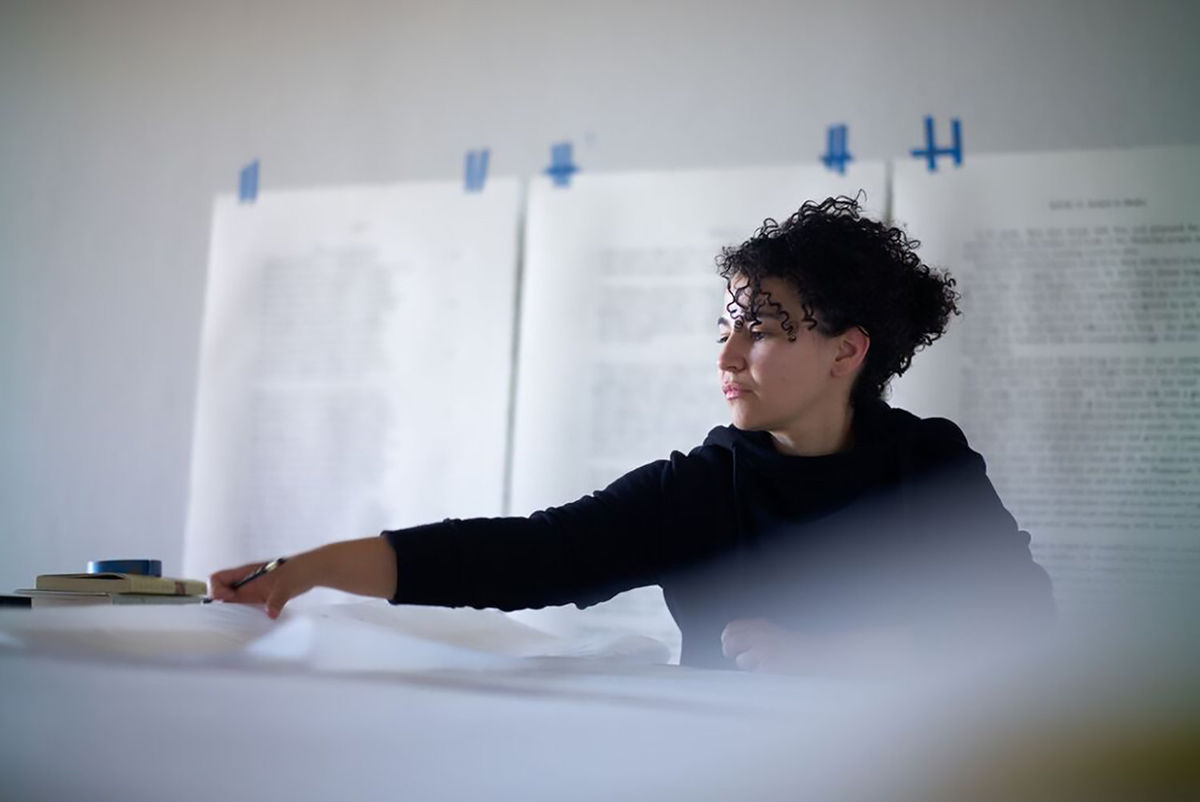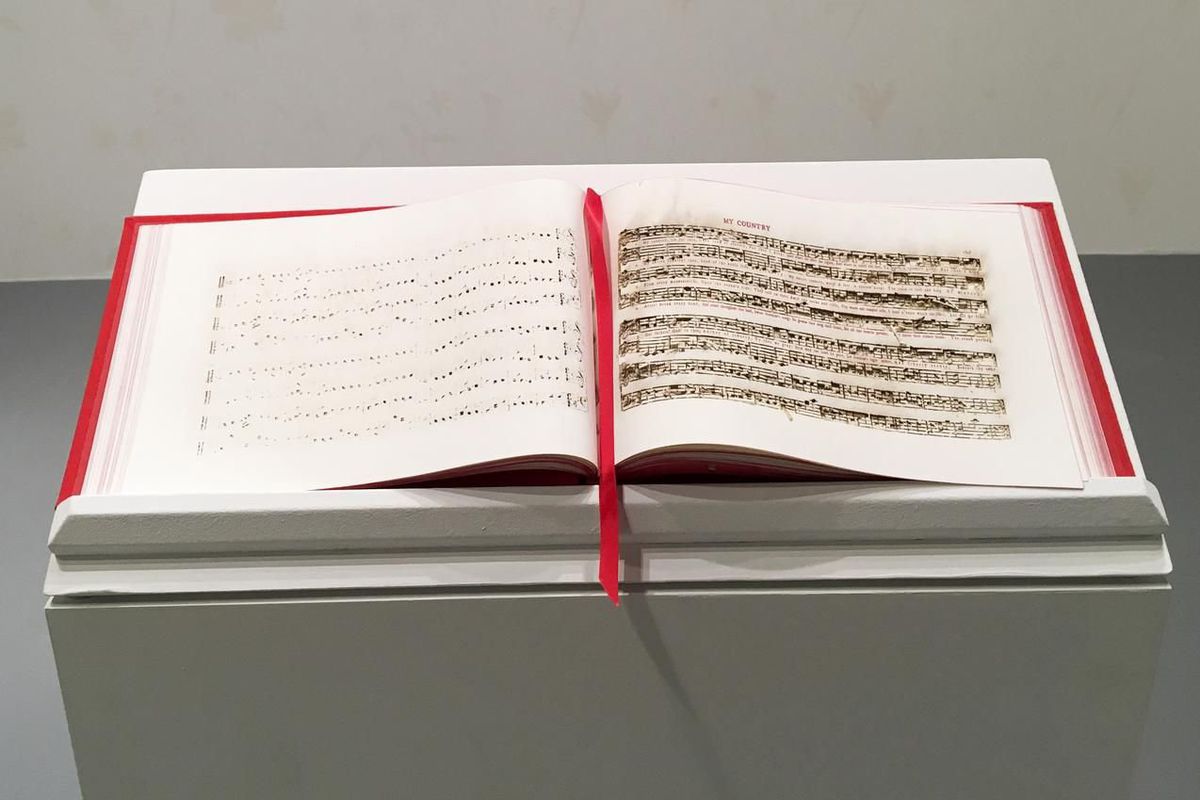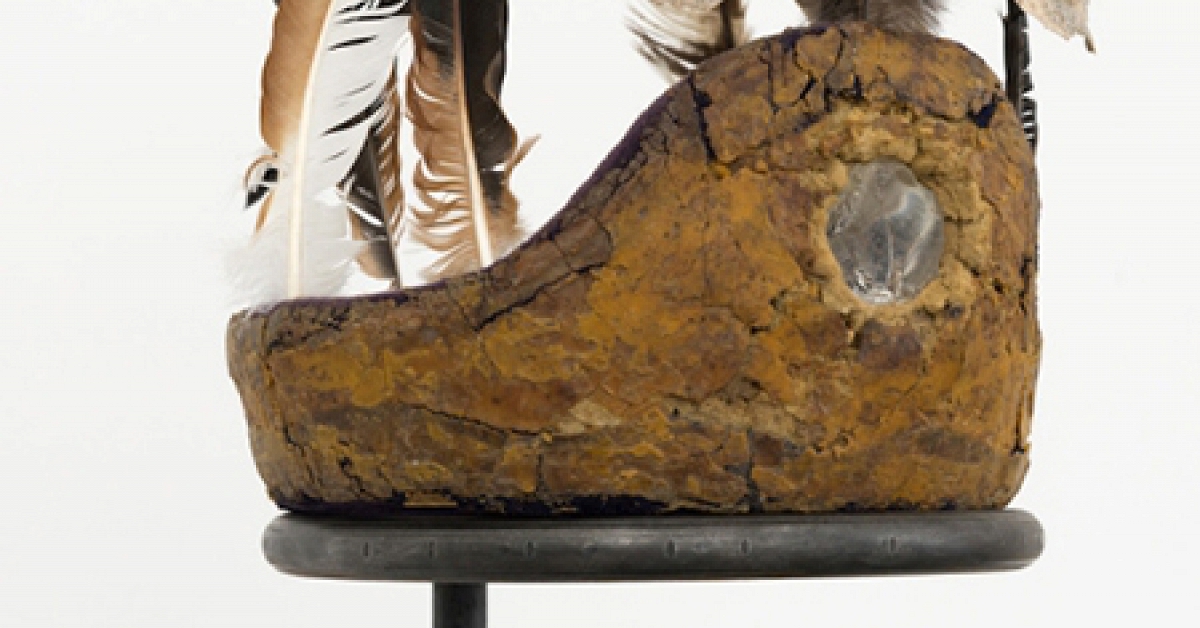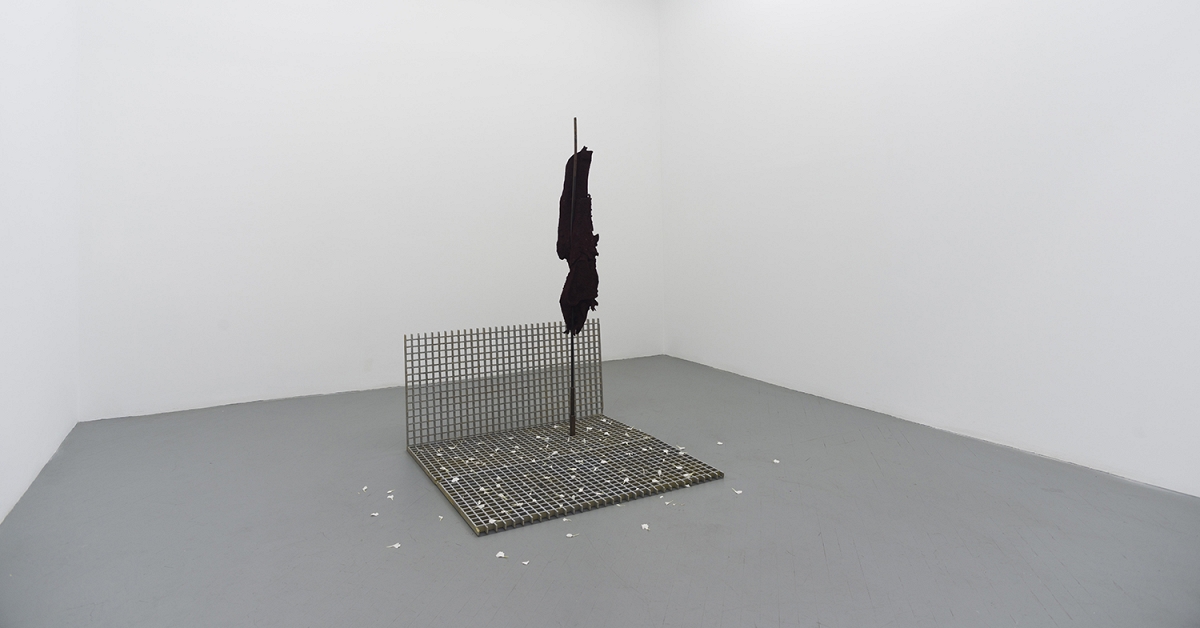Bethany Collins’ America: A Hymnal Offers Refuge From Basel and American Madness
Miami New Times / Dec 5, 2018 / by Celia Almeida / Go to Original

Visual artist Bethany Collins knows she’s about to be uncomfortable. That’s got nothing to do with the themes of race, geographic identity, and troubling American history that underlie “The Litany,” the exhibition she’ll show at Locust Projects during Art Basel. Collins’ work regularly addresses and explores the way these themes intersect with her own identity. Instead, it’s the performative element she’ll introduce in her latest piece that’s making her a little bit nervous.
The anchor of “The Litany” is a display of Collins’ latest artist book, titled America: A Hymnal. The book features 100 reworked versions of American proto-anthem “My Country ‘Tis of Thee,” originally written by Samuel Francis Smith in 1831. From the 18th through 20th Centuries, its melody was used as a template for songwriters who crafted reworked versions in support of different causes throughout the course of American history.
Visual artist Bethany Collins knows she’s about to be uncomfortable. That’s got nothing to do with the themes of race, geographic identity, and troubling American history that underlie “The Litany,” the exhibition she’ll show at Locust Projects during Art Basel. Collins’ work regularly addresses and explores the way these themes intersect with her own identity. Instead, it’s the performative element she’ll introduce in her latest piece that’s making her a little bit nervous.

The anchor of “The Litany” is a display of Collins’ latest artist book, titled America: A Hymnal. The book features 100 reworked versions of American proto-anthem “My Country ‘Tis of Thee,” originally written by Samuel Francis Smith in 1831. From the 18th through 20th Centuries, its melody was used as a template for songwriters who crafted reworked versions in support of different causes throughout the course of American history.
Those schisms are apparent even within the pages of the book that inspired the seven-hour performance. Collins burned out the musical notes in the book so that only the lyrics remain legible. “The thing that’s holding together all these different versions of what it means to be American are burned away and only the differences remain,” she says.
Some versions of the song are controversial enough that singers asked not to sing them. Collins cites a version with the lyrics, “God save the South/God save Kentucky/God save the Confederacy,” as an example. “But without them being sung it’s not a true chronological retelling of American history through this song,” says Collins. “It needs all of them. Even the really hard ones.”
The piece illustrates that modern tensions in America are hardly fresh wounds, but rather, they’re reopened scars. Yet even when spotlighting the historically fractured state of America, Collins hopes her exhibit serves as a kind of refuge for those who view the work. “I think regardless of where they come in, where they enter the work or how they enter the work, I hope what I’ve created is a kind of quiet space that sits apart from everything else that’s happening around it in the city, and maybe more, metaphorically. I hope I’ve created some silence in the middle of Basel.”






